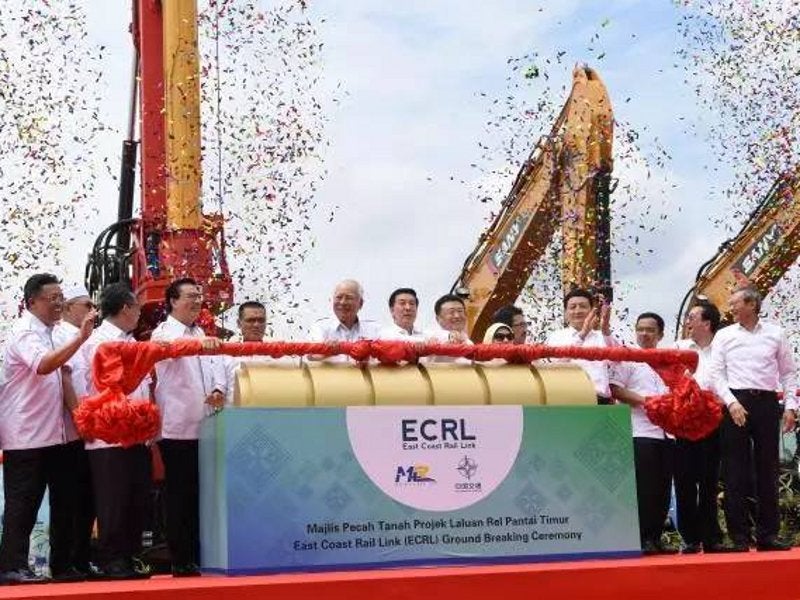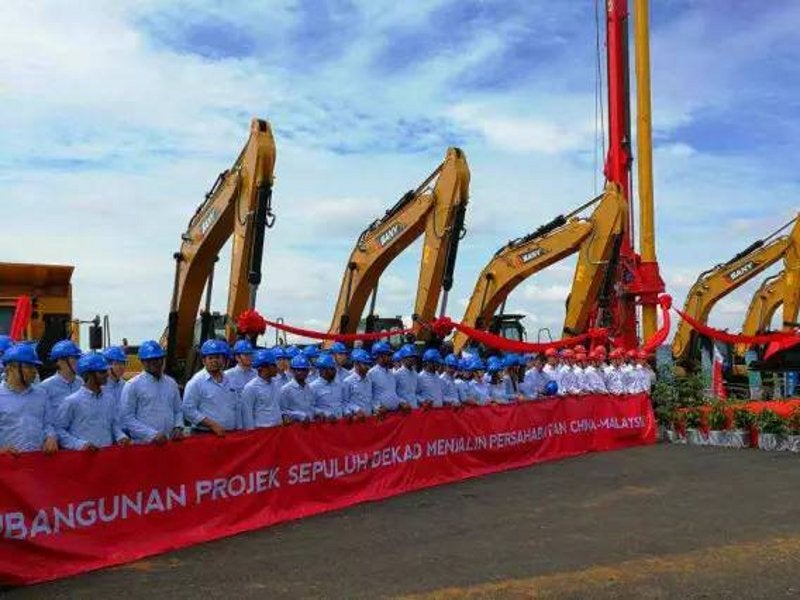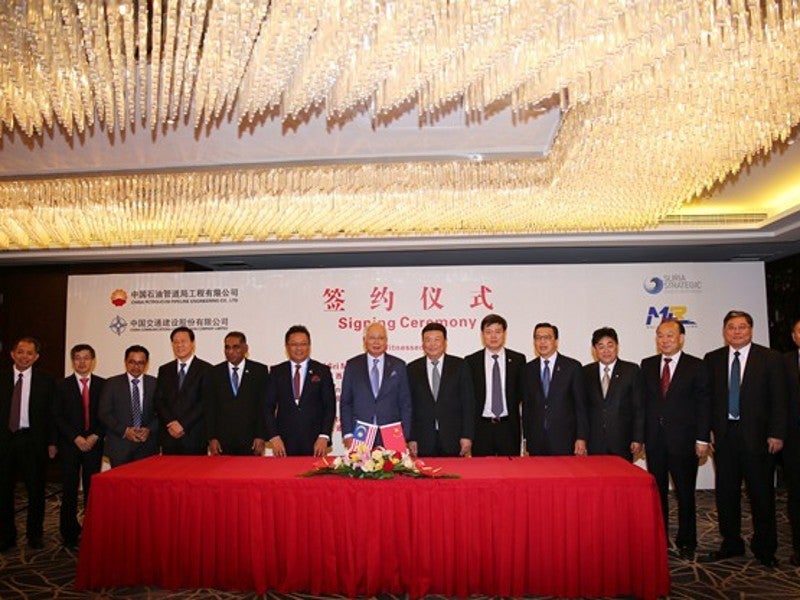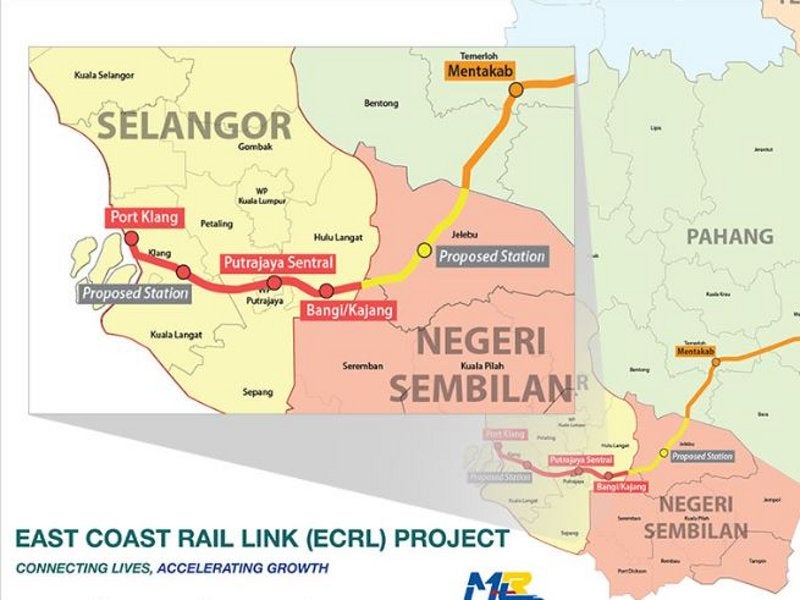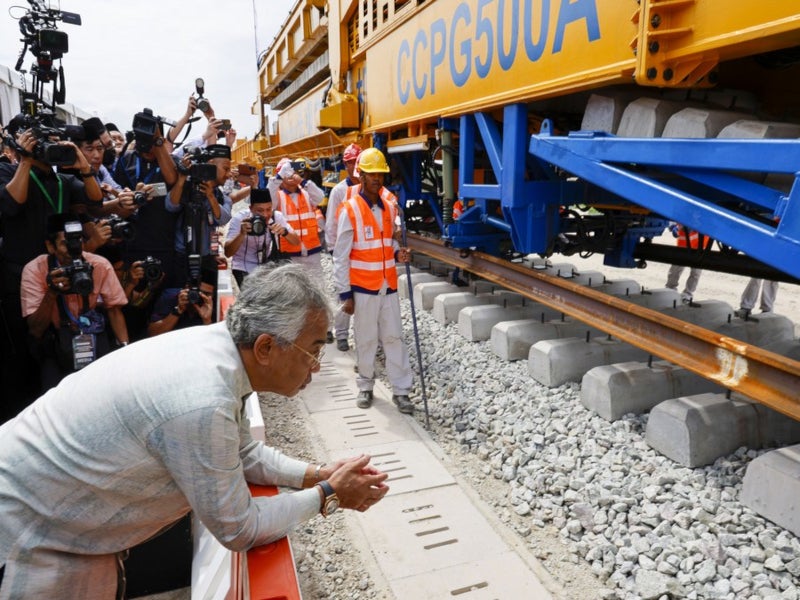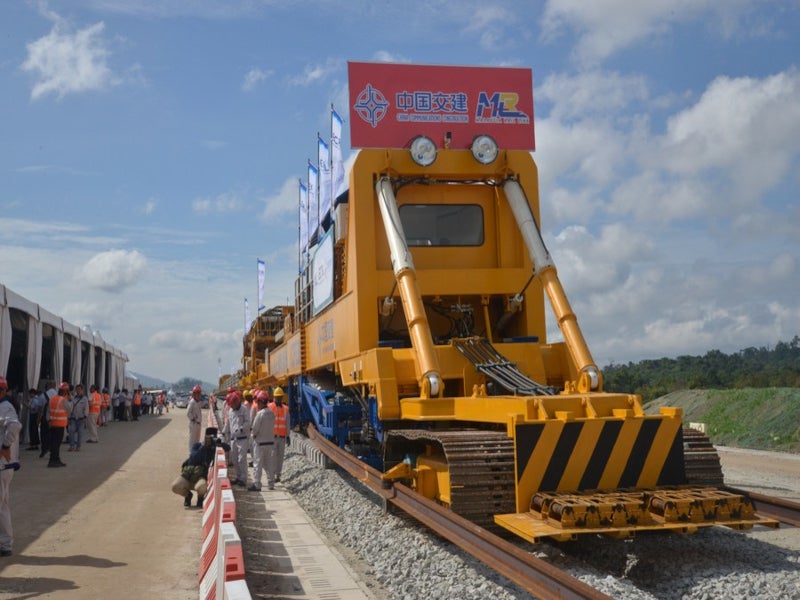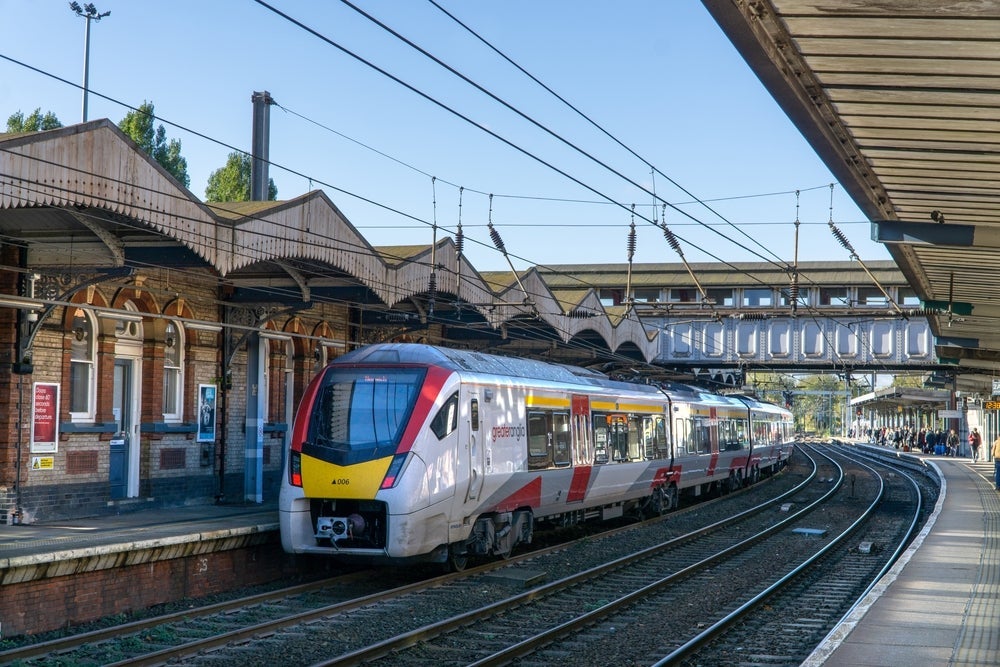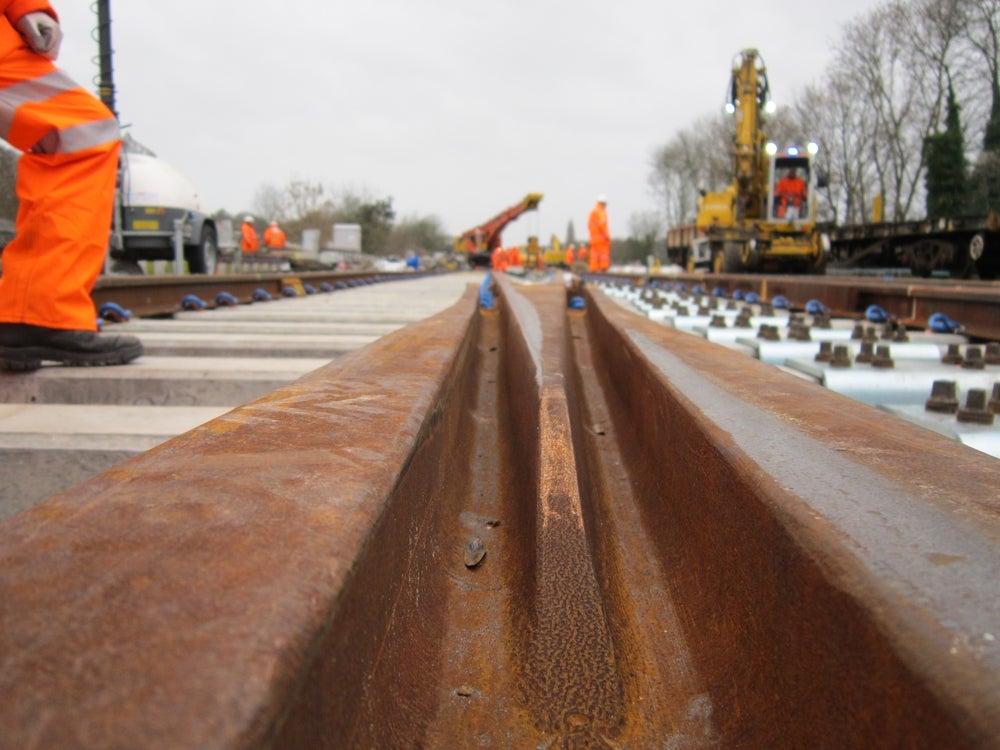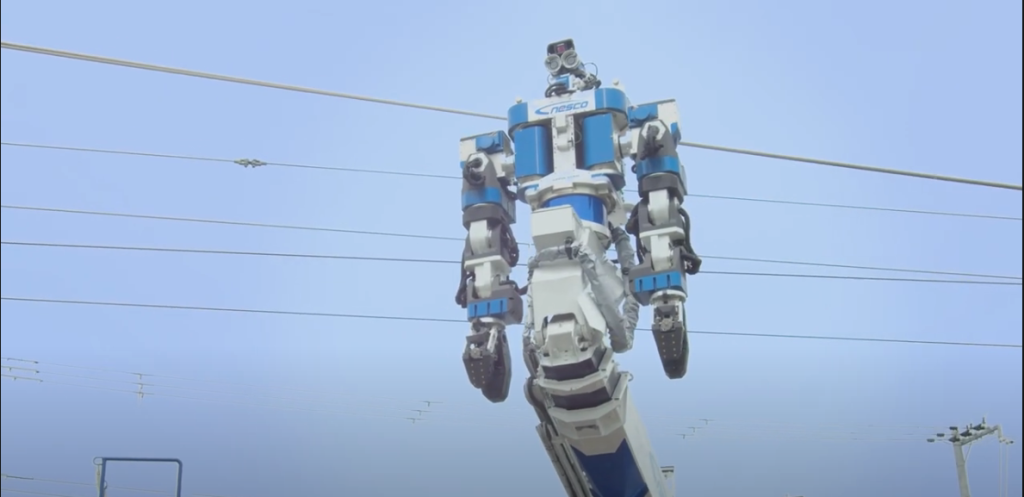The East Coast Rail Link (ECRL) is a 665 km-long railway project being developed by Malaysia Rail Link (MRLSB), a wholly-owned subsidiary of the Ministry of Finance.
The new railway line will connect the states of Kelantan, Terengganu and Pahang along the east coast with the Klang Valley on the west coast of Peninsular Malaysia.
MRLSB will operate in a 50:50 joint venture with the China Communications Construction Company (CCCC). The Ministry of Transport, through Agensi Pengangkutan Awam Darat (APAD), supervises and regulates the project. CCCC serves as the engineering, procurement, construction and commissioning contractor.
Construction on the ECRL project began with ground-breaking in Kuantan, Malaysia, in August 2017, but the work was suspended in 2018 for financial reasons. Construction resumed in July 2019 with completion scheduled for December 2026 and operations expected to commence in January 2027.
ECRL is the biggest economic and trade project between China and Malaysia. Freight transport along the ECRL will account for 70% of the total revenue generated by the rail network, while the remaining 30% will be driven by passenger transport.
The project will serve as a crucial national infrastructure and connect urban and rural areas while enhancing public transportation throughout its electrified railway system. It aims to enhance transportation connectivity, facilitate economic development, and promote trade and tourism along the East Coast region.
The project is expected to generate jobs worth RM17.6bn ($4.2bn) during the construction.
ECRL project background
The ECRL rail project was originally planned to be developed in two phases: phase one covering 600km of track and phase two an 88km stretch.
Some modifications have been made to the alignment due to cultural, heritage and environmental concerns. The realigned stretch will run from Mentakab to Port Klang via Negeri Sembilan to avoid traversing through the Klang Gate Quartz Ridge.
The new alignment also resulted in a significant reduction in construction costs from RM65.5bn to RM50bn, based on a comprehensive value engineering exercise.
ECRL route and station details
The rail link will traverse through the states of Kelantan, Terengganu, Pahang, Negeri Sembilan, WP Putrajaya and Selangor. It will originate at Kota Bharu, the state capital of Kelantan, and terminate at Port Klang in Selangor. It will reduce the travel time from Kota Bharu to WP Putrajaya to approximately four hours.
The ECRL project will comprise 20 stations – ten passenger stations and ten combined passenger and freight stations. The route will have three interchange stations: Mentakab, Bangi/Kajang and Putrajaya Sentral.
Putrajaya Sentral station will be an interchange with the Express Rail Link (ERL) for those travelling to Kuala Lumpur International Airport (KLIA) and KLIA2 and with the Mass Rapid Transit Sungai Buloh-Serdang-Putrajaya (SSP) line.
The line offers interchange with KTM Electric Train Service and KTM Komuter service at Bangi/Kajang, while the Mentakab station will allow passengers to interchange with the KTM Intercity and KTM Kargo service.
The construction of Kota Bharu station on a 50.4-acre site in Bandar Baru Tunjong began in May 2023. It is inspired by and designed to showcase the unique cultural characteristics of Kelantan’s Traditional Malay House and arrowleaf sida. The station will feature an elevated platform, a car park, pick-up and drop-off areas, covered walkways, staff quarters and garden-landscaped areas.
The standard gauge double-track railway line will allow passenger trains to travel at speeds up to 160km/h and freight trains at 80km/h.
The line will have 40 tunnels totalling 69km from Kota Bharu to Port Klang including the 2.8km-long Kuantan Tunnel, the 1.1km-long Paka Tunnel and the 871m-long Dungun Tunnel. The longest tunnel, measuring 7km, will be built in the Jelebu-Semenyih area.
The project will also feature multiple viaducts 100km in length.
East Coast Rail Link construction details
Track installation works commenced in December 2023. It is the starting point for the laying of a 94km track from the Kuantan Port City (KPC) station in Gebeng to Dungun, Terengganu.
Subsequent phases of track installation will connect the KPC station to Temerloh, progressing northward from Dungun to Kota Bharu, Kelantan and finally extending from Temerloh to Jalan Kastam, Selangor.
To ensure a robust foundation and enhance passenger comfort by minimising vibrations during train movement, the installation process employs the CCPG500A track laying machine, along with 500m-long long welded rail and pre-stressed mono-block sleepers.
Specialised equipment facilitates a remarkable installation rate of 1.5km to 2.5km per day, a significant improvement compared to the conventional method’s pace of 500m to 700m per day. Six diesel locomotives, each measuring 22m in length and boasting a maximum speed of 100km per hour, were imported from China in late October 2023 to assist in the transportation of materials.
In 2023, 25 tunnels of the ECRL project successfully underwent tunnelling breakthroughs, of which 21 are situated along the project’s alignment in 210km-long Sections A (Kota Bharu-Dungun) and B (Dungun-Mentakab) spanning 210km plus 41km, with the remaining four tunnels located in Section C (Mentakab-Port Klang), spanning 172km plus 32km.
The Kampung Gedung Siam 3 Tunnel, a crucial component of the ECRL project spanning 1.32km, successfully achieved a tunnelling breakthrough in August 2023. The tunnel has an average height of 13.47m and a width of 13.02m.
Contractors involved
CCCC is the main contractor, while HSSI was appointed to provide supervising consultancy services, detail design and shop drawing design consultancy services for the ECRL.
Bursa Malaysia was selected as the engineering and project management consultant for the project, while logistics services are provided by FGV Holdings.
AECOM was contracted to supervise the stations, viaducts, tunnels and depots.
SANY supplied construction equipment such as cranes, rotary drilling rigs, concrete pump machinery and excavators.
ERE Consulting Group, a member of Aurecon Group, was appointed to optimise the railway alignment to preserve crucial wildlife habitats and landscapes while also minimising disturbances to local communities.

